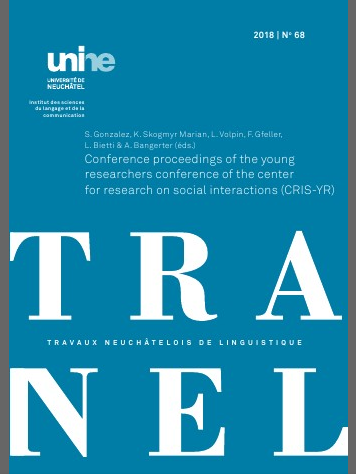Is the power of weak ties universal? A cross-cultural comparison of social interaction in Argentina and Canada
DOI :
https://doi.org/10.26034/tranel.2018.2892Résumé
Although we interact with a wide range of people on a daily basis, the social psychological literature has primarily focused on interactions with close friends and family (i.e. strong ties). Recent research carried out on Canadian students suggests emotional benefits to interacting with acquaintances (i.e. weak social ties). The present study investigates whether this 'weak tie effect' holds in non-Western cultures, using a Latin American sample to broaden our understanding of collectivism. Participants reported daily how many strong and weak ties they greeted in person, as well as a daily subjective wellbeing questionnaire. Preliminary analyses suggest weak tie interaction is related to a sense of community, and indicate distinct patterns of social interaction among Latinos.Téléchargements
Publié-e
01-01-2018
Comment citer
Tilston, O., & Sandstrom, G. (2018). Is the power of weak ties universal? A cross-cultural comparison of social interaction in Argentina and Canada. Travaux neuchâtelois De Linguistique, (68), 107–112. https://doi.org/10.26034/tranel.2018.2892
Numéro
Rubrique
Article thématique


